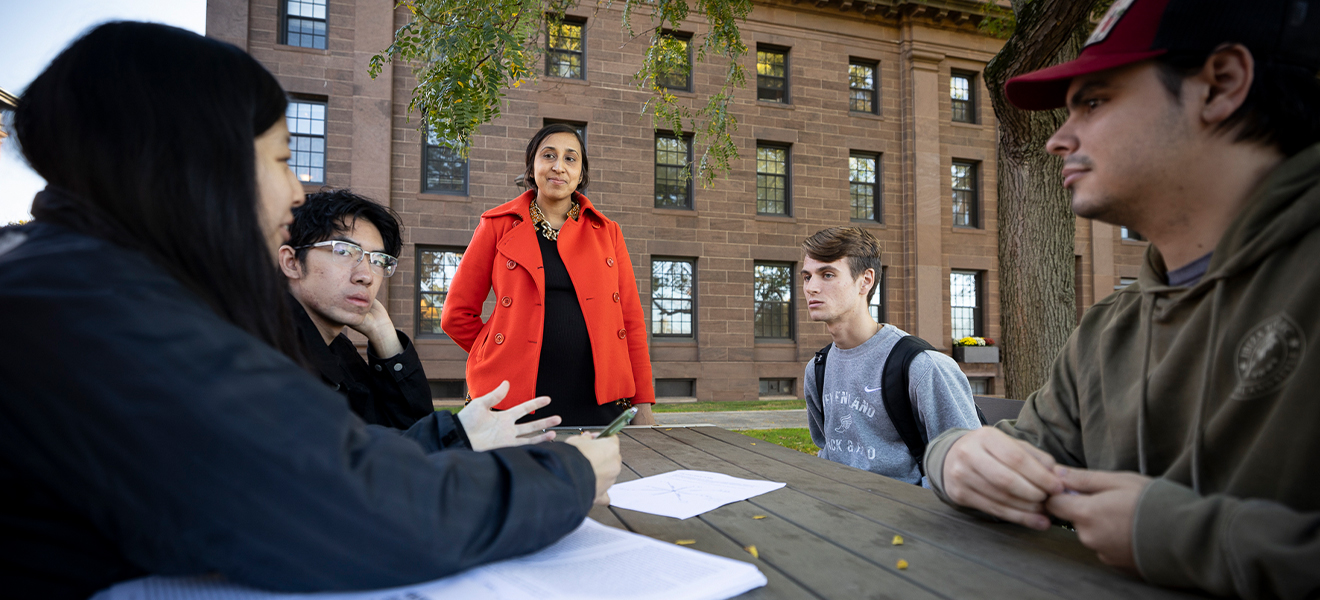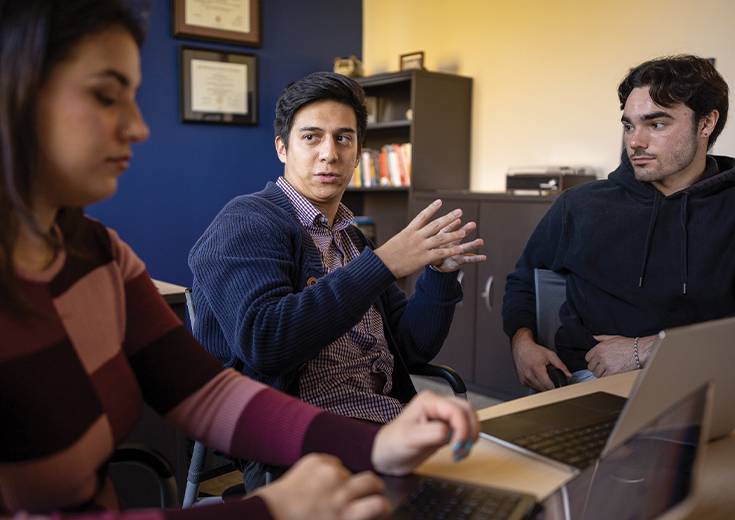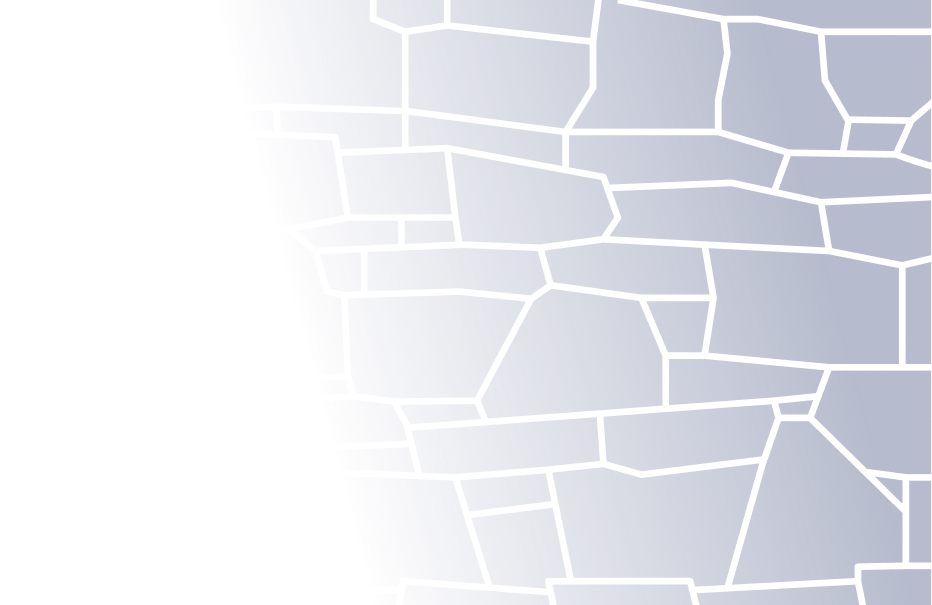
Social Sciences

Work with expert faculty in the social and behavioral sciences to learn how people—as individuals and as group members—think and interact. Study history, politics, and economics to gain a deeper understanding of today’s world. Learn to analyze theories and ideologies, challenge assumptions, and present your ideas with confidence.
Immersive and Expansive
Create your own academic path, expanding your interests, knowledge, and academic pursuits while also diving deep into your areas of expertise. Our distinctive open curriculum approach, supported with general education guidelines, faculty advisors and peer mentors, allows you to align and combine your academic studies with your intellectual curiosity.
Social Sciences Areas of Study
Explore disciplines that examine the complexities of human behavior, society, and global systems, preparing you to think critically about the world around you.
The African American Studies Department offers a substantial interdisciplinary, comparative, and cross-cultural approach to the study of the experiences of people of in the Black Atlantic world. Coursework in the humanities, social sciences, and the arts provides insight into the cultural, historical, political, and social development of Africans in the diaspora, conceptions of race and identity, and how people of African descent have influenced Western society.
African Studies facilitates a deeper understanding and engagement with Africa for the Wesleyan Community and beyond. Bringing together a diverse array of courses from a wide variety of disciplines, this interdisciplinary cluster focuses on Africa as a large geographic region that is of great historical, cultural, political, and artistic importance.
The Department of American Studies provides a broad grounding in the study of the United States within a global context. Coursework draws on a variety of disciplines including anthropology, English, history, religion, and sociology, and programs such as Latin American studies, African American studies, and feminist, gender, and sexuality studies. Individually designed concentrations—which are the hallmark of the department—allow students to forge interdisciplinary approaches to the issues that interest them, from visual culture and aesthetics to racial politics and gender systems.
Animal Studies engages students in multidisciplinary scholarship from such fields as anthropology, ecology, environmental studies, ethnography, feminist studies, legal theory, literary studies, philosophy, political theory, postcolonial studies, psychology, science studies, and urban studies. This combination of scholarly and practical work prepares students for animal-related careers and post-graduate studies.
The Anthropology Department engages students in the study of the complexity and diversity of human and nonhuman life in an interconnected world. Coursework explores topics including urban anthropology, globalization, media studies, consumer culture, social movements, activism, humanitarianism, race, gender, sexuality and ethics.
Applied Data Science provides students with an introduction to data analysis, including the theory and practical skills needed to collect and prepare data for analysis, explore and visualize data, build models and test hypotheses, discover insights, and communicate results in meaningful ways.
The Department of Archeology offers students the ability to design their own concentration as they discover, reconstruct, and analyze past societies through the study of their material remains. Coursework is fundamentally hands-on and interdisciplinary, and students will engage with ideas from Anthropology, Art and Art History, and Classical Studies among others to address modern societal and cultural questions.
Caribbean Studies engages students in the multidisciplinary study of this region at the historical center of the Americas. Peopled by indigenous, immigrant, settler, and diasporic communities, today's Caribbean has extraordinary diversity in its languages, political systems, and cultural histories—representing a microcosm of contemporary global challenges.
Civic engagement encompasses a wide range of activities in which individuals work to strengthen their communities, to realize common goods, to enhance the capacities and dispositions necessary for democratic self-rule, and in general to deliberately shape their common life.
Data Analysis provides students with the theory and practical skills needed to collect and prepare data for analysis, explore and visualize data, build models and test hypotheses, discover insights, and communicate results meaningfully. Students will strengthen their ability to apply statistical, mathematical, and programming methods to traditional areas of empirical research within their fields.
The Economics Department offers social science coursework exploring how individuals, business entities and societies produce, allocate, and consume resources and transfer wealth. Macroeconomics issues such as economic growth, unemployment, and inflation are studied along with the microeconomics of individual behavior and relationships. The study of economics is excellent preparation for careers in academics, business, consulting, law, or government.
The College of Education Studies is designed to help students acquire a deeper understanding of education and its relationship to society. Coursework places an analytical lens on educational institutions, practices, and thinking—from early childhood through adulthood. Students gain a theoretical background on philosophy, history, and psychology of education while exploring topics such as human development and cognition, pedagogy and curriculum, and sociocultural approaches. Students complete a methods course and a hands-on practicum to gain experience that complements their academic work. Education Studies is a linked major, meaning it can only be declared and completed in addition to a primary major.
The Feminist, Gender, and Sexuality Studies (FGSS) Program engages students in critical analyses of gender and sexuality within the broader context of race, class, and ethnicity, and the ways in which these categories shape institutional systems, cultures, and societies. The curriculum includes courses with wide subject, geographic, and thematic coverage, and majors may develop their own areas of concentrated study and perform individually designed research.
Global Engagement offers students a unique opportunity to weave together their academic studies, co-curricular activities, and experiential learning through the lens of intercultural competence. Students will gain theoretical knowledge while applying it to their global interests, honing the skills necessary for effective and respectful interaction with diverse communities.
The Global South Asian Studies department uniquely explores the cultures connected to the region in a worldwide context. South Asia (including India, Pakistan, Bangladesh, Nepal, Sri Lanka, Bhutan, the Maldives, and the Tibetan cultural world) is home to more than a quarter of the world’s population and has diasporas perhaps 24 million strong.
The Department of Government combines the studies of political science and politics. Distinguished scholars and faculty members are affiliated with a concentration in one of the four major subfields of political science: American politics, comparative politics, international relations, or political theory.
The History Department introduces students to the scholarly, evidence-based exploration of, potentially, every area of the human condition and culture from the beginning of recorded time. A grounded knowledge in history enables us to make sense of complex things including the meaning of words, the formation of identities, and the development of societies, systems, institutions and states. Students of history are empowered with a deep understanding of the past to give them a more sophisticated perspective on our contemporary world.
Human Rights Advocacy at Wesleyan empowers students to become effective advocates through a combination of rigorous study and practical engagement. Students participate in supervised human rights fact-finding, documentation, and advocacy, collaborating with the University Network for Human Rights (UNHR) on meaningful projects. This program explores human rights norms, social conflict, and abuses by state and private actors, fostering a multidisciplinary understanding of complex issues. Through critical inquiry and self-reflection, students develop the skills and insights necessary to navigate the challenging landscape of human rights work.
Explore Jewish religion, culture, literature, and Israeli society through interdisciplinary courses that foster a comprehensive understanding of Jewish and Israeli identities.
The Latin American Studies program offers interdisciplinary courses in the humanities and social sciences taught by faculty from other departments who have expertise in Latin America and the Caribbean. Courses include topics in Latin American history, government, economics, literature, culture and theater.
The Medieval Studies program provides an interdisciplinary context for students who wish to study the European Middle Ages. Students may concentrate on one of three fields: art history and archaeology, history and culture, or language and literature. Students have opportunities to experience medieval materials firsthand, including working with artifacts and rare manuscripts in Special Collections, analyzing texts, singing in the Collegium Musicum, gaining familiarity with Latin, or participating on an archaeological dig. Each year, the Department brings distinguished visitors to campus to give public talks and work one-on-one with students.
Middle Eastern Studies allows students to explore and better understand the complex dynamics of the greater Middle East region from Morocco to Bahrain and beyond, and to acquire a deep insight into the global issues related to it. This knowledge covers the economies, governments, religions, histories, artistic culture, and languages of the region.
Muslim Studies engages students in a multidisciplinary study of the set of communities represented by the term “Muslim.” More than a marker of religion, this term may refer to ethnicities, histories, regions and neighborhoods, politics, and artistic, literary, and musical traditions that may or may not have a recognizable connection to Islam.
The Philosophy program enables students to explore questions that are of basic importance to the human experience—such as: What is a good life? What is reality? How are knowledge and understanding possible? What should we believe? What norms should govern our societies, our relationships, and our activities? Philosophers critically analyze ideas and practices that often are assumed without reflection. Wesleyan’s philosophy faculty draws on multiple traditions of inquiry, offering a wide variety of perspectives and methods for addressing these questions.
The Religion Department offers an interdisciplinary program that explores the variety of religious experiences and expressions. Students explore practices of interpretation, systems of belief, patterns of religious behavior, the history of religious traditions, the effects of religion in society, and the ways religions can form collective identity through race, nationalism, gender and sexuality, class, caste, language, and migration. Coursework introduces various forms of religious phenomena such as myth, ritual, texts, and theological and philosophical reflection. Classes cultivate the ability to interpret and analyze social and cultural systems, to critically analyze texts, and to craft arguments in a variety of genres.
The Russia, Eurasia, and East-Central Europe (REES) Department provides a unique interdisciplinary program which includes study of the literature, history, politics, music, cinema, art, dance, and religious background of the countries that used to be part of the Soviet Union and the Russian Empire. In addition to Russian, the REES faculty speak Ukrainian, Buryat, Tatar, and Kazakh languages. Most courses are taught in English and are designed to provide students with the nuanced understanding of this region required to solve today’s geopolitical and environmental crises.
The College of Science and Technology Studies offers dynamic interdisciplinary coursework in the richness and complexities of the sciences, the cultural dynamics of technologies, and the social structures involved in medicine and health care. The program is well suited for students interested in a variety of professional and academic pursuits. Students develop analytical thinking skills, the ability to translate complex technical issues across diverse audiences, and reasoning skills to grapple with the complex social and ethical contexts.
The College of Social Studies (CSS) is a rigorous, multidisciplinary major focusing on History, Government, Political and Social Theory, and Economics. Coursework combines tutorials and courses in social theory within the college with individually selected courses from other departments in the University to achieve an integrated education in the social sciences. Founded in 1959, the CSS is reading and writing intensive with weekly essays, small group tutorials, and a vibrant intellectual environment.
The Sociology Program helps students develop new frameworks for analyzing a broad array of social relations—from everyday life interactions to large-scale historical and structural transformations. Coursework includes the topics of social theory, social movement, critical media studies, sexualities, family, gender, race & ethnicity, education, inequality, globalization, economy & development, work, leisure, healthcare, urban sociology, religious movements, philanthropy, political sociology, and sociological methods of analysis.








